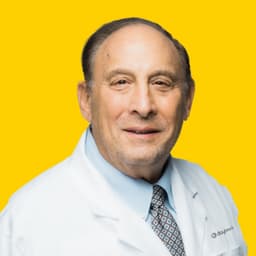Comparing Treatment Options for Sleep Apnea: CPAP, Mandibular Advancement Devices, & Surgery

Dr. Martin Hopp MD, ENT
Sleep apnea is a serious condition that affects millions of people worldwide, with obstructive sleep apnea (OSA) being the most common form. Left untreated, OSA can lead to a range of health problems, including cardiovascular issues, diabetes, and decreased cognitive function. If you or a loved one has been diagnosed with sleep apnea, you may be considering your treatment options. Here, we’ll compare the three main treatment methods: CPAP (Continuous Positive Airway Pressure) machines, mandibular advancement devices (MADs), and surgery.
Each option has its advantages and disadvantages, but for many people, convenience and effectiveness are key factors when choosing the right treatment. At Daybreak, we offer a fully at-home solution that makes diagnosis and treatment simple and accessible, empowering you to take control of your sleep and, in turn, your life.
CPAP Machines: The Gold Standard, But Not Without Challenges
How it works: CPAP machines are the most commonly prescribed treatment for moderate to severe sleep apnea. They work by providing continuous air pressure through a mask, which helps keep the airway open during sleep.
Pros:
- Effective: CPAP is considered the gold standard for treating sleep apnea, particularly for more severe cases.
Cons:
- Inconvenience: The biggest drawback of CPAP machines is the inconvenience. Wearing a mask connected to a machine every night can be cumbersome, especially for those who travel frequently or have difficulty adjusting to the device.
- Discomfort: Many users report discomfort from the mask, as well as issues like nasal dryness or irritation. Compliance rates can be low due to this discomfort.
- Maintenance: CPAP machines require regular cleaning and maintenance, which can be time-consuming and add to the inconvenience.
Mandibular Advancement Devices (MADs): Convenient, Non-Invasive, and Effective

How it works: MADs are custom-made oral appliances designed to gently reposition the lower jaw forward during sleep, preventing airway collapse.
Pros:
- Convenience: One of the biggest advantages of MADs is their convenience. Unlike CPAP machines, MADs are small, portable, and easy to wear, making them an excellent choice for people who prioritize simplicity in their treatment.
- Non-Invasive: MADs are non-invasive, which means there’s no need for surgery or other complex procedures. They offer a reversible treatment option that can be discontinued at any time.
- Few Side Effects: Most people tolerate MADs well, with few reported side effects. Occasional jaw discomfort or tooth movement can occur, but these issues are generally minor and temporary.
- High Compliance: Because MADs are comfortable and easy to use, people are more likely to stick with the treatment long-term, improving overall effectiveness.
Cons:
- Adjustment Period: Some users may need time to adjust to wearing an oral appliance at night, though this period is often shorter than with CPAP devices.
Surgery: A Permanent Solution with Risks
How it works: Several surgical options are available for treating sleep apnea, including procedures to remove or shrink tissue in the throat, reposition the jaw, or implant devices to stimulate the airway muscles.
Pros:
- Long-Term Solution: Surgery can provide a permanent solution to sleep apnea, especially for those who cannot tolerate other treatments or have specific anatomical issues contributing to their condition.
Cons:
- Invasiveness: Surgery is the most invasive treatment option, involving significant risks such as infection, bleeding, and complications related to anesthesia.
- Recovery Time: The recovery period can be lengthy and uncomfortable, requiring time off work and other activities.
- Not Always Effective: Even after surgery, some people continue to experience sleep apnea symptoms or need to use additional treatments, making surgery a less certain solution.
Conclusion
At Daybreak, we understand that convenience and effectiveness are crucial for anyone seeking sleep apnea treatment. That’s why we offer a complete, at-home solution from diagnosis to treatment. Our FDA-cleared process allows you to take a sleep test in the comfort of your own home and receive a custom-made oral appliance tailored to your needs. MADs are an ideal choice for many people due to their non-invasive nature, ease of use, and proven treatment efficacy.
